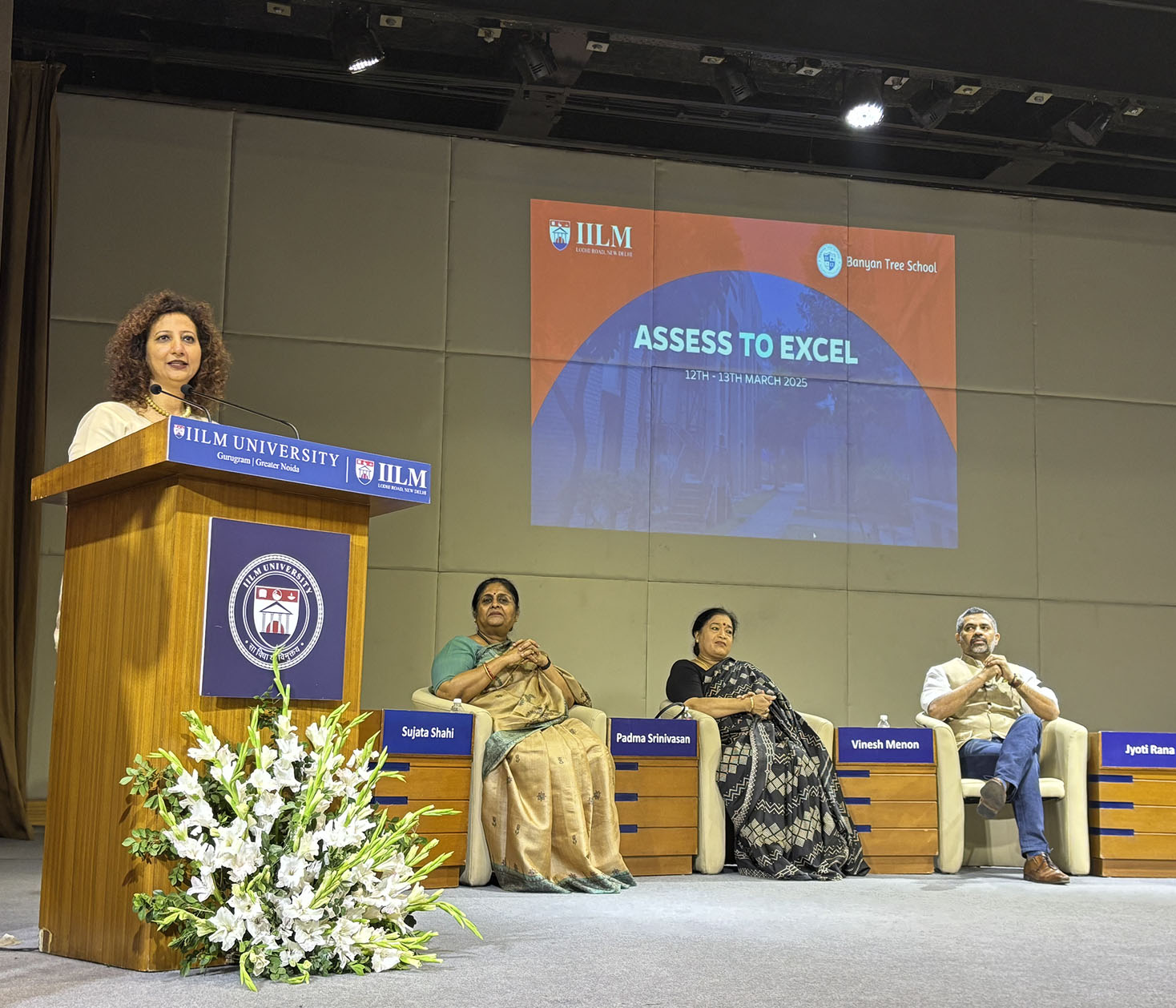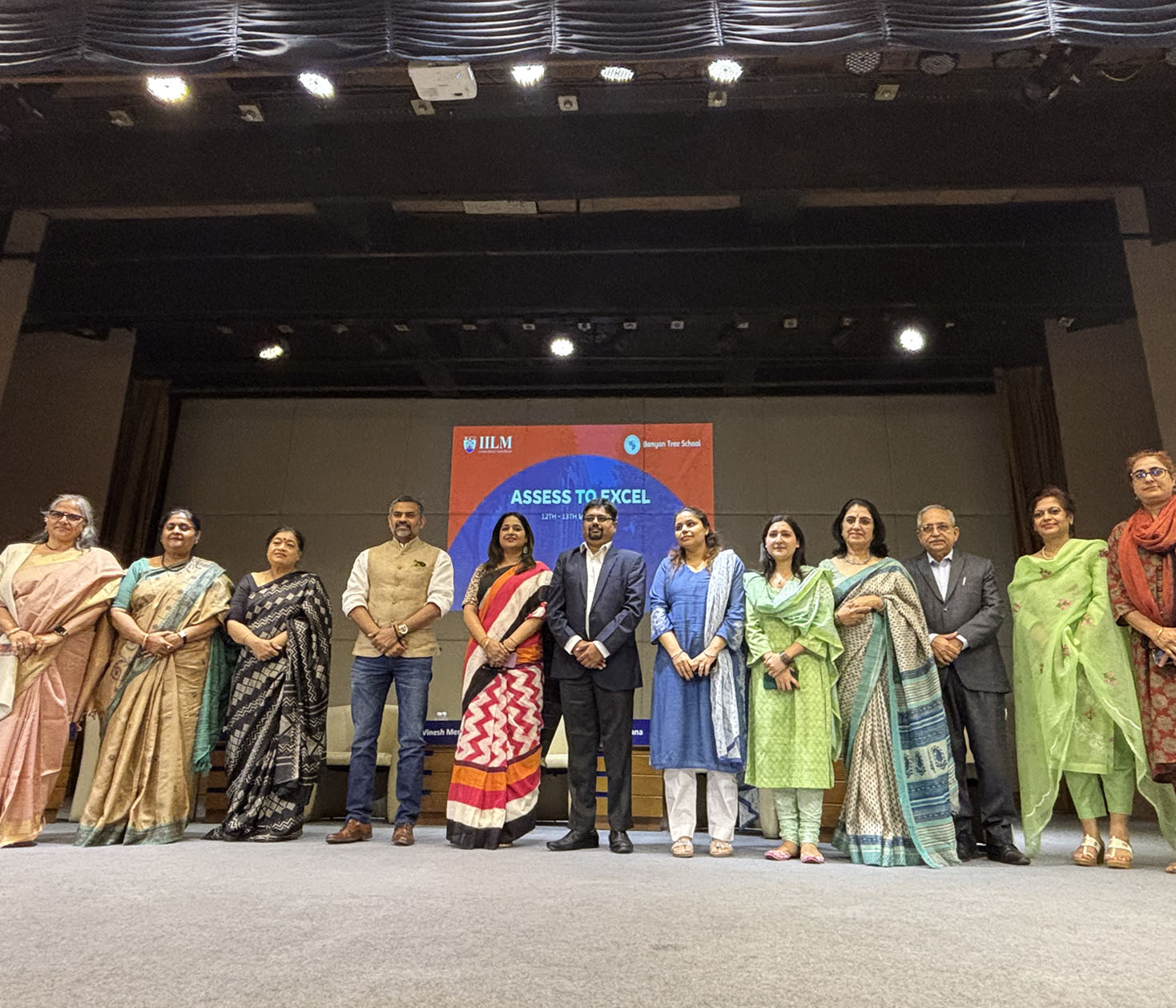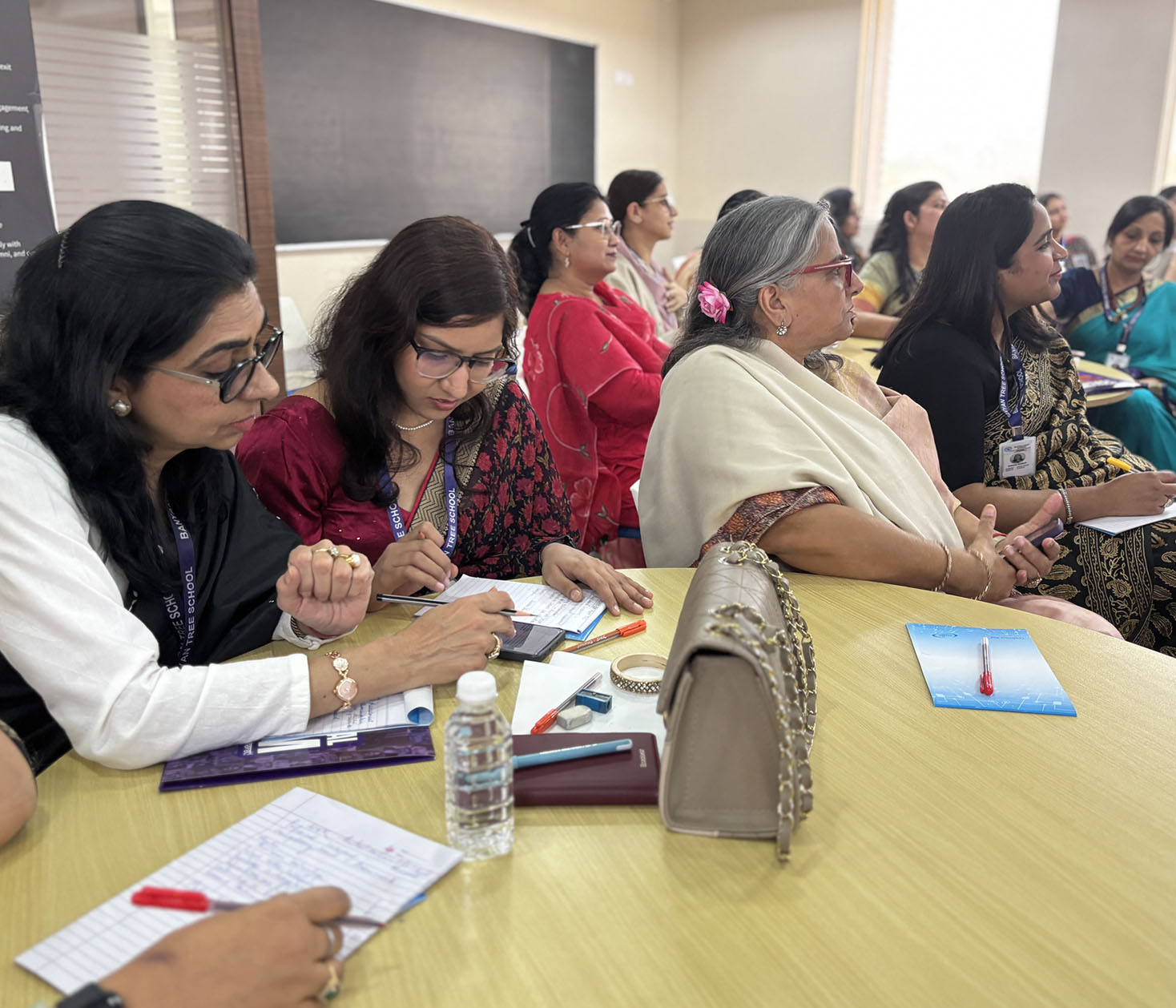Assess to Excel: A Competency-Based Assessment Workshop
Mr. Vinesh Menon delivered the inaugural address, tracing the evolution of India’s education system and urging teachers to embrace change, adapt to challenges, and understand students’ evolving perspectives. He stressed the significance of digital literacy and soft skills, emphasizing the role of educators as guides rather than authoritative figures.
Resource persons Mr. Ashtamurthy Killimangalam and Ms. Dimple Sood led an interactive, hands-on workshop for educators to develop and implement competency-based assessments for core subjects like English, Mathematics, and Science. The workshop aimed to enhance skills in identifying domain-specific competencies, creating high-quality assessments, and providing authentic feedback. Participants gained valuable insights from ACER’s expertise. Key topics included understanding competency-based assessments, exploring digital learning aspects, comprehending PISA competencies for Reading, Mathematics, and Science, and aligning NCFSE competencies with PISA goals. The workshop focused on designing domain-specific, competency-based assessments for effective learning outcomes.



Experiential Learning, Ms. Brinda Ghosh
This workshop on experiential learning provided educators with a deep dive into the foundational theories of John Dewey and David Kolb. Dewey emphasized the importance of experience in the learning process, arguing that education should be rooted in real-life activities that foster critical thinking and problem-solving. Kolb’s experiential learning cycle further elaborates on this by outlining four stages: concrete experience, reflective observation, abstract conceptualization, and active experimentation, highlighting how learners engage with content through active involvement. Educators engaged in interactive discussions and case studies that illustrated these theories in practice. The workshop culminated in a collaborative activity where teachers developed subject-specific experiential learning activities tailored to their classrooms. This hands-on exercise encouraged educators to think creatively about how to integrate meaningful experiences into their curricula, fostering deeper understanding and engagement among students. By the end of the workshop, teachers had not only explored the theoretical underpinnings of experiential learning but also left with practical strategies to enhance their teaching practices, aiming to create dynamic learning environments where students can thrive through active participation and reflection.




Faculty Development Workshop: Understanding Learners- Pedagogical Imperatives for Effective Learning




